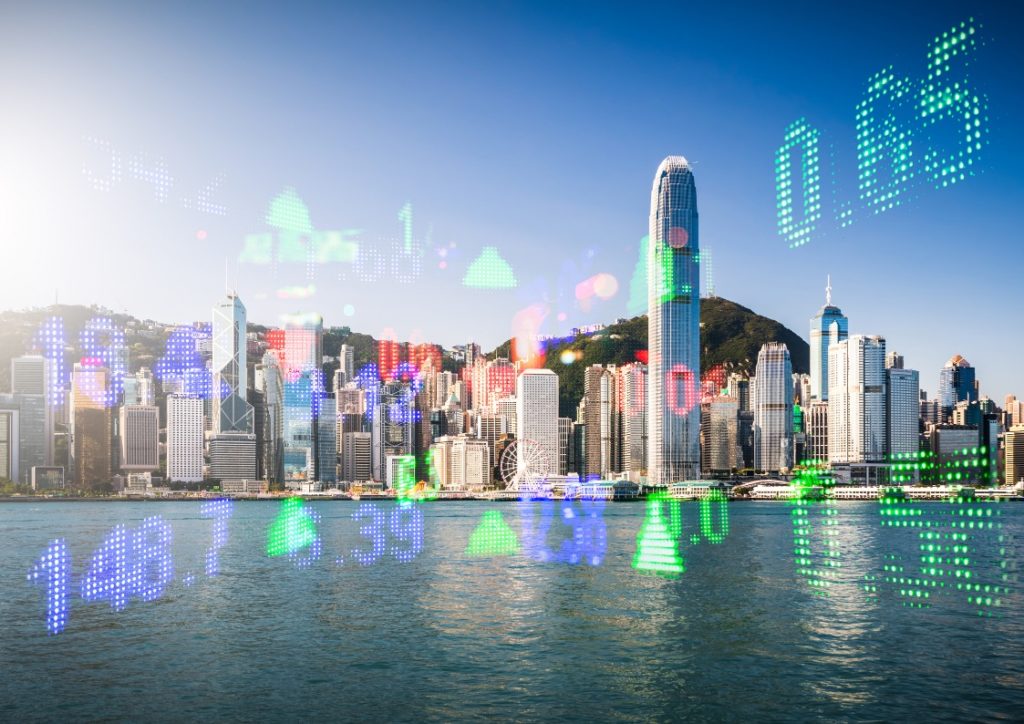Green finance and sustainable investment have become a larger presence in economics around the world, but have been particularly salient in global financial centres like Hong Kong. As ReThink Hong Kong, a unique business conference centred around sustainable economy, society and environment, returns for its second edition on October 5-6 at the HKCEC, expert speakers and panelists are sharing their valuable insights, solutions and strategies including green financing and how it can help make a positive impact in Hong Kong and the Greater Bay Area’s sustainability.
—
Earth.Org sat down with Tracy Wong Harris, who plays double duty as the Vice President and Deputy Secretary General of the Hong Kong Green Finance Association (HKGFA), and the Head of Sustainable Finance for Greater China and North Asia at Standard Chartered Bank, ahead of her panel at ReThink, about sustainable and green finance in Hong Kong and beyond.
EO: Can you tell us how you first got into Sustainable Development?
Harris: I’ve been a long-time banker but the conversion really happened when I became a mother. Having a child made me think about the quality of food, air, water, and other environmental issues, and the future I want for my child when he grows up.
EO: What is Green Finance and Sustainable Investment, and the roles that HKGFA and Standard Chartered’s Sustainable Finance Business play?
Harris: Green and sustainable finance refers to how we use a financial instrument or product to channel capital to make a positive environmental and social impact. Think of it like a bond wrapped in environmental, social and corporate governance (ESG). Sustainable investment on the other hand, refers to how investors look at and assess a company’s sustainability before investing in them. My role at Standard Chartered is a great platform to encourage a lot more action with these types of green and sustainable transactions in the market while with the HKGFA, we are helping Hong Kong to position itself to be the leading green and sustainable finance hub by working with the government, regulators, and the industry in building the city’s green and sustainable finance market.
EO: How do you support Hong Kong as a leading green and sustainable financial hub?
Harris: We have simple goals – channelling capital into the areas that are needed the most for positive changes and impacts for the environment and society, and how we can decarbonise and reach the targets set out in the Paris Agreement.
One of the most successful strategies of the HKGFA is collaboration. Addressing the climate is not a single sector issue, but across both private and public sectors. What we’re best at is building the bridge between the market and the industry, and forcing the link together to create the green and sustainable finance we have today. We work very closely with the government and regulators, and currently have eight working groups ranging from banking – working closely with the Hong Kong Monetary Authority – to the bond market – working with the Hong Kong Stock Exchange – to policy recommendations that see collaboration between Hong Kong and mainland China, as well as internationally.
You might also like: Rethinking the Relationship Between EU Trade Policy and Domestic Sustainable Agendas

Tracy Wong Harris (third from right) at the 2020 HKGFA Annual Forum.
EO: What are the biggest challenges in transitioning to a green and sustainable economy in Hong Kong?
Harris: Green and sustainable finance is still less than 10 years old and like any new market, the initial phase is always challenging. People don’t understand the concepts behind it and knowledge of green and sustainable finance is still all over the place. The challenge now is about continuing and reiterating the same message and getting that message consistently across the whole financial ecosystem.
To be the bridge between two sectors can be a challenge as well. If you want to make systematic changes and policies across the market, you need the environmental and financial camps to really talk to each other and find the common ground, then execute them in a systematic way and make it impactful for the whole market.
EO: What successes or changes have there been in Hong Kong green finance?
Harris: The results speak for themselves. We have seen how green and sustainable finance markets have grown in the last few years. We have already seen green and sustainable banking measures being set up and how ESG reporting is now required and mandated. As we’re still very young, there’s so much room for growth.
To be able to bridge the market and make policy influence in the right way has been one of our proudest achievements. As we shift our focus more towards connecting Hong Kong and mainland China after launching the Greater Bay Area Green Finance Alliance (GBA-GFA) last year, we will have more innovative live projects across different cities in the GBA and drive innovative products and policy changes in this region, to really make the connection more concrete.
EO: How do events like ReThink help reach shared sustainability goals?
Harris: The financial sector traditionally works in isolation when addressing environmental and sustainability issues, but as I mentioned before, collaboration is needed across the ecosystem. While the HKGFA helps form a clear bridge between the financial markets and policy makers, ReThink is driving this further and penetrates the topic into the community. It’s what ReThink is good at and taking a position in driving further changes.
You might also like: ‘Green’ ESG Investments: The Future of Business?

















